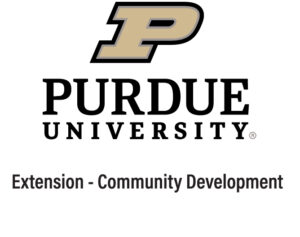
On Block at a Time: Community-driven Planning and Equitable Adaptation through Multi-benefit Green Infrastructure
Great Lakes communities are facing multiple climate-related water challenges. Frontline communities, marginalized due to income insecurities and historic effects of redlining, are experiencing these challenges most acutely, yet have the fewest means to respond. In Michigan City and Hammond, Indiana, neighborhoods with high social vulnerability index scores are challenged with managing complexities of flooding, extreme heat, and drought, which are coupled with social issues including food insecurity. In the Lincoln Park neighborhood of Duluth, Minnesota, residents are still recovering from a historic two-day mega-rain event in 2012 and face water challenges due to steep topography, high levels of impervious surfaces, and an increase in urban flooding events. In Erie, Pennsylvania, residents experienced multiple extreme weather events and are struggling to adjust to climate variability and uncertainty.
Purdue Extension and Sea Grant partners from Illinois-Indiana, Minnesota, and Pennsylvania formed a multi-community work team to address climate-hazards in Michigan City and Hammond, Indiana, Duluth, Minnesota, and Erie, Pennsylvania. The team developed mirrored community engagement processes tailored to the neighborhoods, leading toward implementation of Ready for Rain One Block. The focus is on developing community-planned public and private green and gray infrastructure projects within one city block which could be duplicated across nearby city blocks. To implement across the four communities, three project phases were developed: 1) background assessment of climate hazards and vulnerabilities, 2) community visioning, and, 3) implementation of a multi-benefit green infrastructure project.
In Indiana, the team collaborated with a community center and two gardens in Michigan City and a neighborhood farm in Hammond working with garden managers, neighbors, and site users to conduct focus groups, interviews, and site visits to collaboratively design rainwater irrigation and harvesting structures and rain garden overflow. Purdue landscape design undergraduate students assisted in designing and installing these garden sites. In Duluth, the team conducted surveys and focus groups for neighborhood urban flooding needs, and developed sites for community-led green infrastructure projects. In Erie, the team focused on building relationships with local communities through focus groups and interviews, developed 3D models of vulnerable locations, and are currently identifying a green infrastructure demonstration site. Community center and neighborhood farm managers and volunteers, and municipal and community leaders were engaged in the activities.
As a result, the Purdue Extension and Sea Grant team engaged marginalized neighborhoods, provided technical assistance and leadership, and contributed to community resilience to climate-related water challenges with the design and installation of rainwater harvesting practices and rain gardens.
Read more Community Development Extension Impact Stories.
